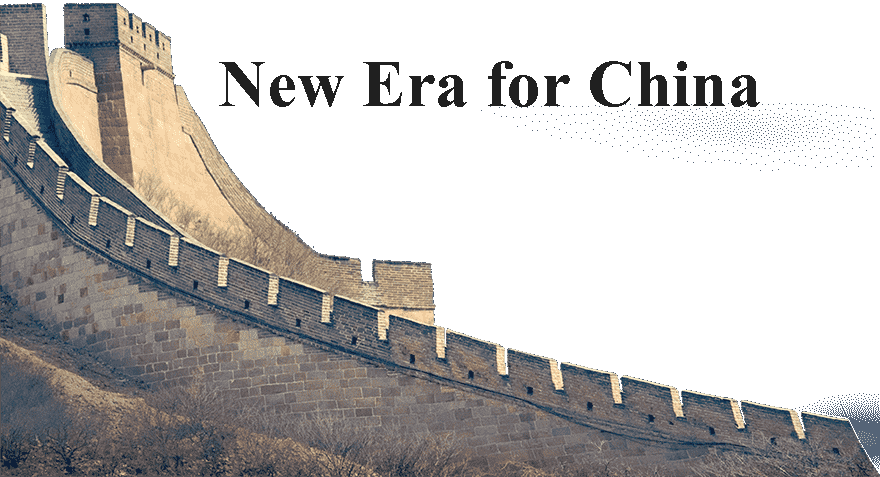In a surprising statement, Chinese Foreign Ministry Spokesman on 22 September 2021 stated that the “…Galwan incident took place because India violated all signed agreements and treaties and encroached upon Chinese territory and illegally crossed the Line,” an allegation suitably responded to by MEA Spokesman. The entire schema in 2020 was Chinese deliberate, well-planned, premeditated belligerence. It included mobilisation of two divisions in Aksai Chin and retaining them, the multiple points on intrusions in Eastern Ladakh, and refusal to return to status quo positions. The PLA offensive in 1962 too China had termed the War as “Counterattack in Self Defense on the China-India Border!” In the backdrop of such confrontational attitude and aggression, China calling India as violating all agreements is pot calling the kettle black! Nothing that happens or is said in China is impromptu, extemporaneous or unpremeditated! The statement was timed to coincide with the QUAD Summit in Washington DC, exhibiting grave anxiety and concern.
Socialism with Chinese characteristics had been the hallmark of Chinese policies since the eighties that ushered in capitalism which Deng Xiaoping had famously stated as, “…it does not matter if cat is black or white as long it catches mice.” However, contextually it must be brought to fore that profound changes can be discerned in China since the 19th Party Congress, held in October 2017, where the policy was changed to ‘socialism with Chinese characteristics in the new era.’ What was contemplated as this ‘new era’ and the “spirit of the 19th CPC National Congress”? It exhorted adherence to and development of socialism with Chinese characteristics, renewal of the Marxist-Leninist standpoint and methods. There is deep push on in China to draw balance between economic development and social development, revitalisation of a socialist culture, newer concepts of development and common prosperity, anti-corruption campaign and intensive efforts to hone nationalism. There is hence need to contemplate on the changes happening in China and how they would impact on India.
With the domestic political character, the CCP has been leading state purges of all opposition or dissent under the umbrella of corruption, and is ruthless in punishing perceived delinquents. There are references of purges to include those at high perch termed ‘Iron Hat Princes’ in an obvious equation with the twelve aristocrats of Qing Dynasty who opposed political reform out of personal greed and interest. From 2012 to 2019, 7 Generals, 19 Lt Gens and 55 Maj Gens were investigated and punished. Earlier this year, the CCP had declared start of a long-expected purge of their ranks of corruption, which will involve, “turning the knife-blade inward” against those corrupt or insufficiently loyal to the party and its leader, Xi Jinping. Disloyalty to the hierarchy and the CCP was always unpardonable; it is now at another high level.
As we come to present times, a change is evident towards heightened socialism, in ‘new development concept’, ‘dual circulation economy’ and ‘common prosperity,’ as stated by President Xi to the CCP’s Financial and Economic Affairs Committee on 17 Aug 2021. These have a sub-text towards domestic economy and equitable distribution of pie. This increased emphasis on socialism and Marxism is meant for addressing domestic audience, and interventions towards equitable income distribution.
This can now be easily correlated to strong crackdowns and intensive regulatory measures against the technology corporations like Alibaba, Tencent and Didi. It has been appreciated that near $1 trillion has been lost in Technology stocks since February 2021. The Evergrande real estate corporation with $300 billion debt is, it seems, being allowed to go under, unmindful of the effect that it will have internally or globally. The Chinese Government seems to be allowing the private sector to suffocate, the same sector that contributed 60% to its GDP! It is evident that the Chinese leadership, largely through state controlled media, is allowing dissemination of such information in the open realm, as it leads to downfall of Chinese oligarchs, to emphasise on social equity. The public was even allowed to witness the images of riot police deployment outside Evergrande Shenzhen building on 12 September 2021! To express socialist-faith to the masses regulations have been tightened and foreign capital is not considered essential. The capitalists of China that brought the nation to the very high international pedestal are not acceptable in the ‘new era’, even if they are remotely perceived as challenging the CCP hierarchy or the larger concept of socialism and equity!
There is also a new incremental cultural revolution is in progress, with revitalisation of socialist culture. Coming heavily on ‘vulgar aesthetics’, there has been banning on shows that show men in an effeminate way, low moral values and unhealthy content, social media and gaming and restricting the young playing video games for 3 hours a week. With focus on education, apparently there is attempt to reshape cultural values of the society and clamp dissent. There is an obvious hard ideological push internally, understandably as a sub-context of the demographical challenges and low fertility rate.
The geopolitical ambitions of China transcend beyond the borders. As part of this social and cultural transition, and moulding of public opinion, honing in nationalism is imperative. China’s has exhibited revanchist, hegemonic and expansionist intent, in the two China Seas, Taiwan and Ladakh, and against South East Asian Nations, that have evoked internal passions. Over a period of time, China took calculated risks to change the military balance of power in the South China Sea. Yet, the US and the allied militaries continue to operate in China’s stated exclusive economic zones (EEZs) in the freedom of navigation operations and not recognising China’s incorrect claims in South China Sea. This is despite China’s attempts to exercise control over all military activities within its EEZs. There is an increased risk of military confrontation, by the repeated incursions in Taiwan’s territory and at the Senkaku Islands. As an aside, there has been deterioration in relations with US, ongoing trade frictions and recriminations over the coronavirus pandemic.
Under the geopolitically and economically important venture, China’s colossal infrastructure investments under BRI were targeted to usher in trade and growth for global economies. The high cost and political impact of this Chinese-funded infrastructure development has led to debt burden for the recipient nations. Apparently the costs of many projects have skyrocketed, there is lack of transparency in tendering processes and the mandatory use of Chinese corporations/firms, managers, supervisors and workers, many nations have had internal protestations, political backlash and even cancellation of contracts. China has extensive trade relations with large number of countries, though other that Pakistan as a near client-state, there are no extensive alliances. There are repression and human rights violations, of the Uighurs, Mongols (in Inner Mongolia) and Tibetans, and in Hong Kong, that never seem to relinquish centre stage.
To cut the chase, the constant triumphalism of rise of China in global influence, economically, technologically and militarily must not be overlooked. However, the argument that “China is a Declining power – and that’s the problem: The United States needs to prepare for a major war, not because its rival is rising but because of the opposite” (Foreign Policy, dated 24 September 2021), is compulsive and deserves serious consideration. If China peaks too early, and is unable to reach the well publicised important goals and timelines (2027, 2035 and 2047) of national rejuvenation, the internal and external stresses and outcomes are unpredictable.
Mindful of this realpolitik, there is a need to shed rhetoric, emotionality and sentimentalism in India. There are three critical and imperative considerations:
- First, China is seriously constrained by and anxious of the warmth evident in India-US relations, the way QUAD has fashioned itself, and its ambit and its overtures to South East Asian Nations. India’s relations with China or being part of QUAD are not a function of India-US relations. India distinctly retains strategic autonomy in pursuance of her own national interests and objectives, like in relations with other nations like Russia or France, as part of organisations like BRICS or SCO, or continuing trade and economic interaction with China.
- The newer apportioning of blame of the incursions in Eastern Ladakh of 2020 that led to the serious incident at Galwan Valley on 15 June 2020 must be taken as permanence in belligerent attitude. Galwan Valley incident was tactical issue, but it was not a small incident, it had strategic and in fact global ramifications. The boundary is disputed, and resolution of the dispute is mandatory to proceed with other facets of relationship. For India, territorial integrity is a prime responsibility, and without formal resolution, progress on other facets of relationship, like economy, will remain problematic. China’s reference to boundary as a national sovereignty issue and not a territorial one is an attempt towards increasing nationalism. India is also a large country with second largest population, the Himalayas in the North, large maritime frontier and capable, modernising military. Hence, threats or admonishments of miscalculation of Chinese comprehensive strength are counterproductive.
- India is focussed towards national and socio-economic development of her people, and does not prefer war in any manifestation, as it will have far-reaching ramifications for both countries and South Asian and global landscape. Yet, that does not deter preparations to meet such eventualities. India must continue in its endeavours to obviate any strategic surprise from any adversary, along the land or sea domains or along the technological frontiers.
The Chinese State is continually dishing out calculated information through direct controlled media or through deliberate propagandist pop-ups incessantly, to mould public opinion and push for the cultural change. Another important sub-text is that the National People's Congress in March 2018 had approved the removal of the two-term limit (prevalent since 1990) on the Presidency, effectively allowing President Xi Jinping to remain in power for life. The two-terms of President Xi will end in 2022, and will have to be approved in the 20th Party Congress to be held in October/ November 2022, for which public and CCP opinion has to be assured. The immediate future is to predict and assess if the trajectory is right, by the 20th Party Congress that may rubber-stamp the extension of tenure of President Xi beyond the ten years. Or otherwise, singular efforts can be initiated in China to prove indispensability!
In sum, India and China are matured, ancient civilisational countries. Peace and tranquillity are imperatives for India, as they are for China. India has also shown infinite patience and long-term desire for peace. There is a limit to which the Agreements and CBMs can function; following which events can take their own course, outside the realm of Protocols. As there is trust deficit among both forces, there could be an equal and opposite reaction, to any situation on the LAC. Events have a life of their own and it cannot be guaranteed that the next ones will not spiral of control and create an international incident, and even escalation. This must be avoided at all costs, and there must be forward movement on the delimitation-de-escalation process, as an immediate necessity. The offer of passing on boundary issue to future generations has let many a generation pass on, and is no good! We need to make a beginning, decide the process and modalities of talking boundary and LAC, and start rebuilding trust. Best is to resolve, what can be resolved, and there are many such areas where negotiations can commence. Trust will have to be rebuilt, and understandably it will take immense time and effort. We have to make a beginning, for the good of our peoples. The momentum itself will generate trust.
As Bob Iger of the Walt Disney Company once remarked, “…The riskiest thing we can do is just maintain the status quo.”











Post new comment